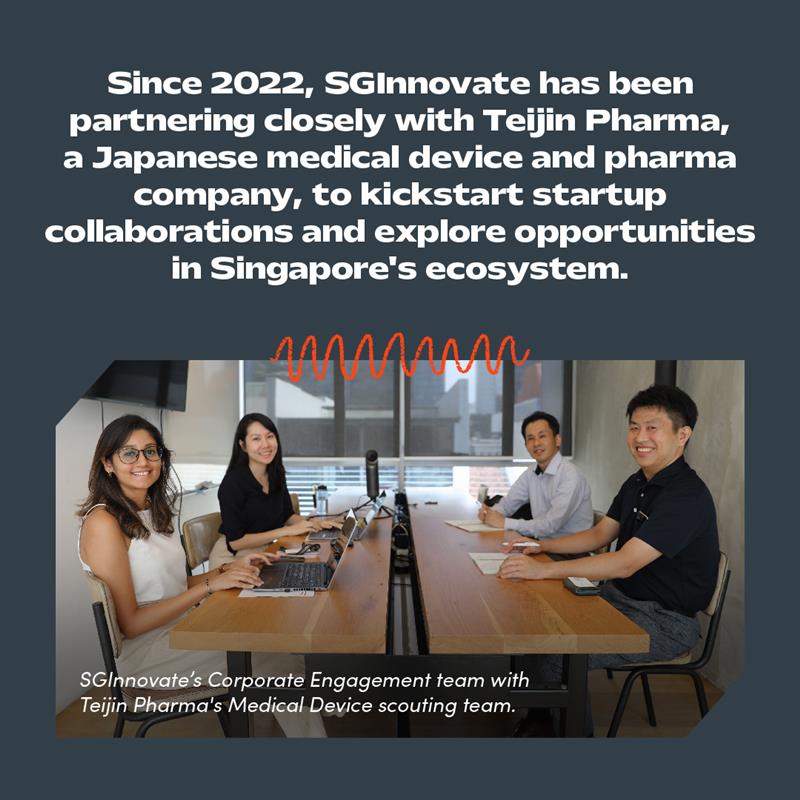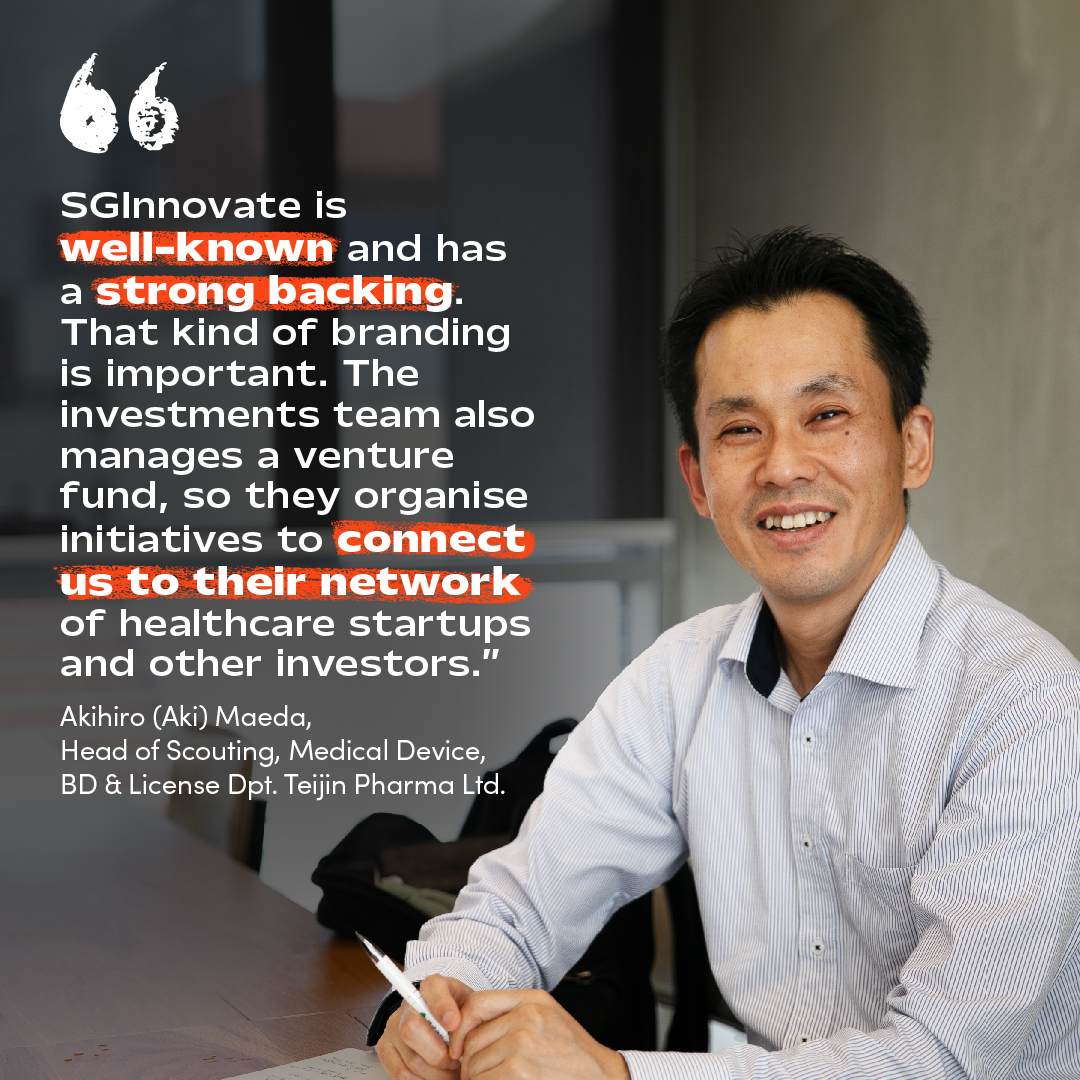When corporates venture into the startup world: Meet the bridge builders facilitating corporate innovation
Tue, 11/12/2024 - 12:00
Corporates are collaborating with Deep Tech startups to stay ahead, with corporate investments in startups gradually increasing since early 2024. But what is the secret to a successful corporate-startup partnership?
ChatGPT is a water guzzler. For every five to 50 prompts it answers, 500ml of water is consumed at data centres – equivalent to the environmental footprint of one plastic bottle.
Burgeoning water usage at data centres is a problem shadowing the rise of Artificial Intelligence (AI). But one corporate-startup tag team in Singapore is working to stem the tide. In 2023, Singapore-based wastewater treatment startup Hydroleap partnered with IX Technology, an infrastructure solutions provider, to make regional data centres more eco-friendly using novel wastewater treatment techniques.
Such partnerships reflect a growing trend of corporates collaborating with startups, especially in Deep Tech, across different domains from quantum computing to biotechnology and blockchain, tapping on startups’ agility and expertise. Finding the right match, however, can be a challenge.
This is where SGInnovate’s Corporate Engagement team comes in. Assistant Director of Investments (Corporate Engagement) Kellie Chan, Investments Manager Nikita Gupta, and Assistant Manager Charlotte Tan help run bespoke programmes that bridge the gap between startups and corporates globally. We speak to them to find out more.
1. How has the dynamic between corporates and startups changed in recent times?
More companies are turning to corporate venture capital (CVC) as a strategic tool to expand their business and innovate, given rapid technological advancements and market fluctuations. In 2022, there were 101 new corporate investment units globally – a record high. Corporate backers were also active in 19 per cent of venture capital (VC) deals worldwide, up from 15 per cent the previous year.
Beyond investments, there has been a rise in corporates and startups seeking long-term partnerships that open doors to co-development and joint ventures.
2. What is your approach when collaborating with corporates scouting for startups to partner with?
Our goal is always to tailor the engagement to meet the needs of each corporate. As a first step, we seek to understand a corporate’s objectives through clarifying their goals and identifying pain points. Following this, we assess their business needs and selection criteria to better understand what type of startups to scout for.
We engage corporates in the following three ways depending on their innovation priorities:
-
Ecosystem Dialogues
For corporates seeking to entrench themselves within the startup ecosystem and stay abreast of niche technological trends. Through regular conversations, we enable mutual knowledge-sharing and create strategic collaboration opportunities. -
Matchmaking Programme
For corporates seeking solutions to immediate challenges with the right startup. We do this either through direct engagement with the startups or through an open call, to ensure that problem statements are addressed. -
Tech Scouting Programme
For corporates seeking solutions for mid-to long-term business needs. We identify suitable startups and provide comprehensive services such as curated startup reports and preliminary assessments on selected startups. This programme taps on our well-established network and expertise in the Deep Tech ecosystem.
READ: SGInnovate’s Early-Stage Emerging Tech Startup 2023 Report
3. Tell us more about the challenges corporates face when scouting for Deep Tech startups to partner with, and what makes a successful partnership?
For corporates, agility is key in identifying relevant startups in line with the latest industry innovation trends. This challenge may be compounded for those who may not be well-connected with startup ecosystem stakeholders such as incubators, accelerators, VC networks, and research institutes. Corporates who do not have a presence in scouting regions may find the search for relevant startups challenging especially when each country has a unique ecosystem and varying levels of technology maturity.
With a large number of startups incorporating annually, scouting for and vetting startups can become time-consuming for corporates who may only be interested in a niche domain.
From our experience, successful corporate-startup partnerships require both parties to clearly communicate objectives, milestones, and requirements. Both sides must be willing to share sufficient information and establish their commitment to collaborating from the start.
4. How does curated tech scouting, such as what the team offers, help corporates?
As a Deep Tech investor for close to a decade now, we have invested in hundreds of startups and currently manage over 80 portfolio companies in domains such as alternative protein, advanced manufacturing, BioMedtech and cybersecurity, to name a few. This experience comes with extensive knowledge of trends and insights gained from assessing long-term growth and survivability.
Our strategic position in the APAC region has allowed us to form partnerships with critical stakeholders in the ecosystem, including other venture capitalists and tertiary research institutes that corporates can leverage as an additional data point to inform their internal strategy.
Our emphasis on the process to distil a corporate’s focus areas and expectations from the get-go while acknowledging that their needs are dynamic helps us deliver bespoke plans tailored to goals.


Teijin Pharma has been a corporate client of SGInnovate since 2022. Slide right to find out what Head of Scouting for Medical Device, Mr Akihiro Maeda has to say about working with the team.
5. What makes Singapore an attractive ecosystem for corporates to kickstart their startup collaboration journey?
Singapore’s Deep Tech ecosystem benefits from government support that drives innovation and establishes infrastructure to facilitate the sandboxing of technologies in areas of emerging technologies like AI, biotechnology, and cybersecurity.
"We are from the business development team in Japan and our purpose is to create new businesses for our home care medical devices division. Typically, we search for startups from the US or European countries, but right now, based on the number of patents filed and papers published, we’ve identified Asia Pacific, and specifically, Singapore as an attractive country to scout for startups.” - Akihiro (Aki) Maeda, Head of Scouting, Medical Device, BD & License Dpt. Teijin Pharma Ltd.
A well-functioning triple helix — access to ample funds from VCs and family offices, strong research and development capabilities and a robust talent pipeline — helps enable startups and corporates to foster partnerships and test innovative solutions in a supportive environment.
Reach out to SGInnovate’s Investments team to explore potential partnerships today. Send an enquiry to [email protected]
Trending Posts
- Keeping satellites safe: How CYSAT Asia 2026 is tackling space cybersecurity
- The future of fusion energy: What will it take to bring the power of the stars to earth?
- How an aerospace engineer charted a path to quantum technology
- Scaling nanomaterials is challenging — Meet the startup with a hybrid solution
- Surveying Singapore's early-stage emerging tech startup landscape






